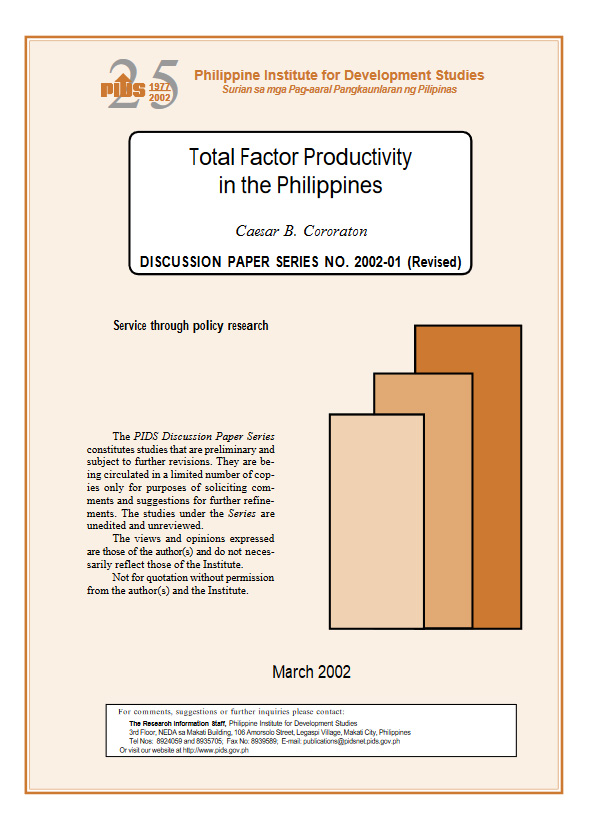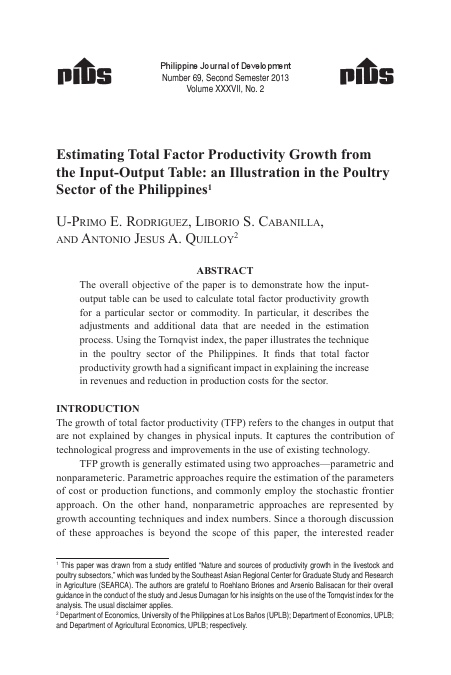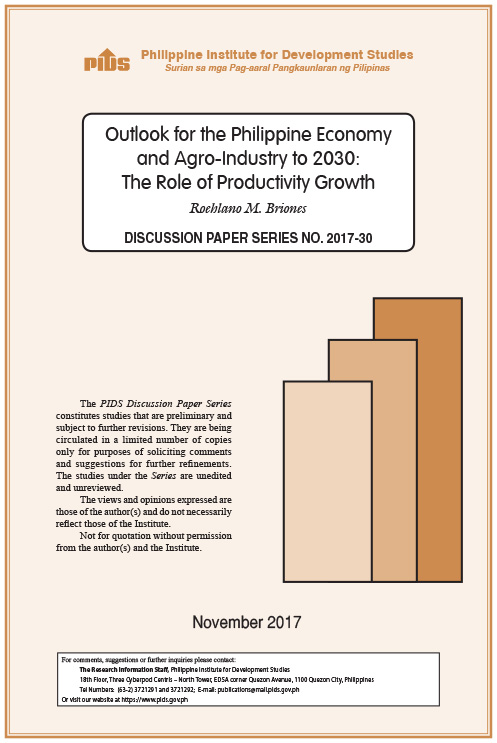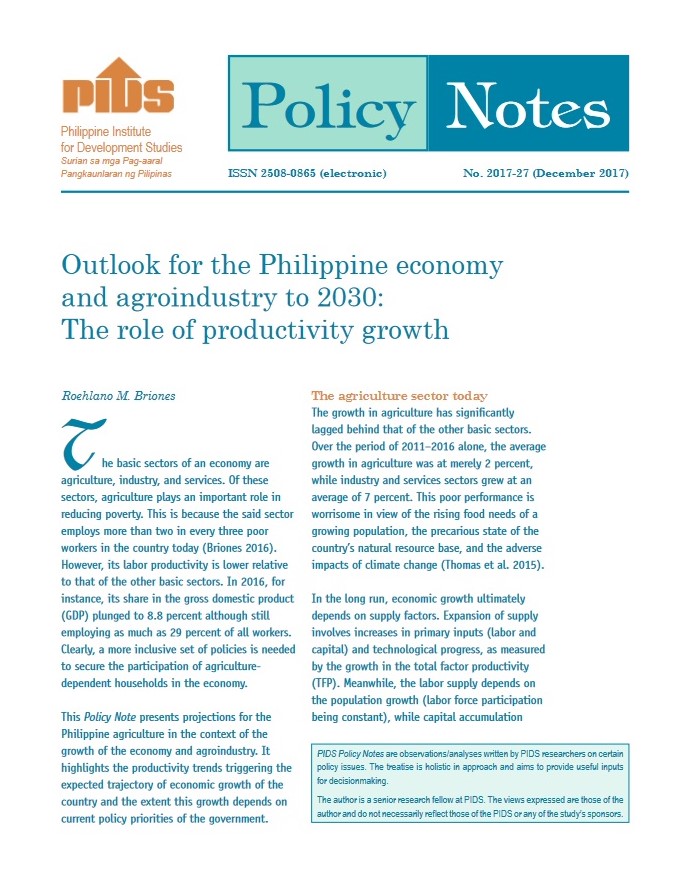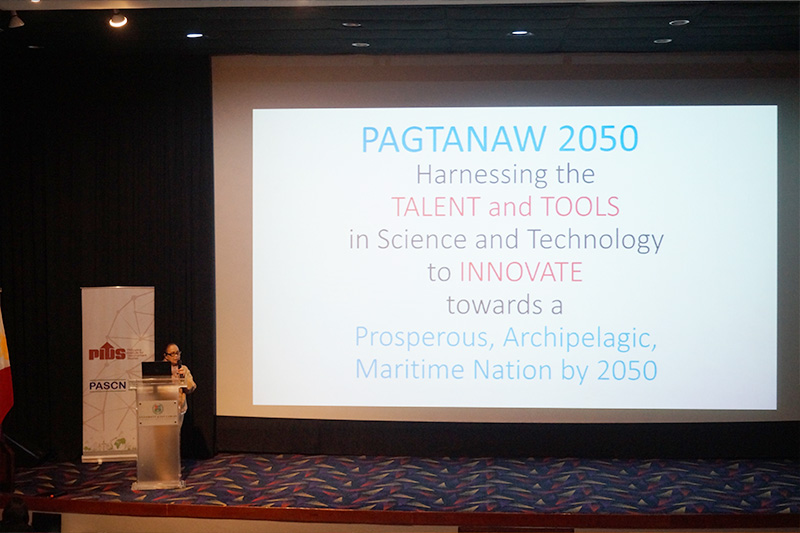The paper presents estimates of total factor productivity (TFP) from 1967 to 2000. It was observed that while TFP growth was mostly negative in the last thirty-five years, its contribution to economic growth improved consistently from – 1.76 percentage points in the middle of 1980s to +0.41 in 1998-2000. This is the period when major economic policy reforms were pursued vigorously. In spite of the increasing share of skilled labor to the total, its contribution to TFP growth is observed to have declined through time. This may imply deterioration in the quality of education necessary for productivity improvement. This may also imply the negative effects of brain drain as a result of massive Filipinos working abroad. Efficiency improvements seem to have been gained from the movement of labor out of agriculture. Sound macroeconomic fundamentals, and opening up to foreign trade and investment are two critical factors affecting TFP growth. Spill over effects are observed to be far significant from the growth in industry than in agriculture and service sectors.
Citations
This publication has been cited 6 times
- Boroviæ, Zoran. Mladen Rebiæ, and Dalibor Tomas. 2020. Total factor productivity drivers in the selected EU countries: Cointegration approach. Zbornik radova Ekonomskog fakulteta u Rijeci/Proceedings of Rijeka Faculty of Economics, 38, no. 1, 295-315 . University of Rijeka, Faculty of Economics and Business.
- Ganev, Kaloyan. 2005. Measuring total factor productivity: growth accounting for Bulgaria. GE, Growth, Math methods 0504004. University Library of Munich, Germany.
- Lamberte, Mario B.. 2002. Central banking in the Philippines: Then, now and the future. Discussion Papers DP 2002-10. Philippine Institute for Development Studies.
- Todorov, Ivan and Kalina Durova. 2016. Economic growth of Bulgaria and its determinants. Economic Studies journal, no. 4, 3-35. Bulgarian Academy of Sciences - Economic Research Institute.
- Todorov. Ivan. 2016. Supply-side factors of economic growth in Bulgaria. Economic Alternatives, no. 2, 159-174. University of National and World Economy, Sofia, Bulgaria.
- World Bank. 2005. Philippines: From short-term growth to sustained development. World Bank Publications - Reports 8552. The World Bank Group.

